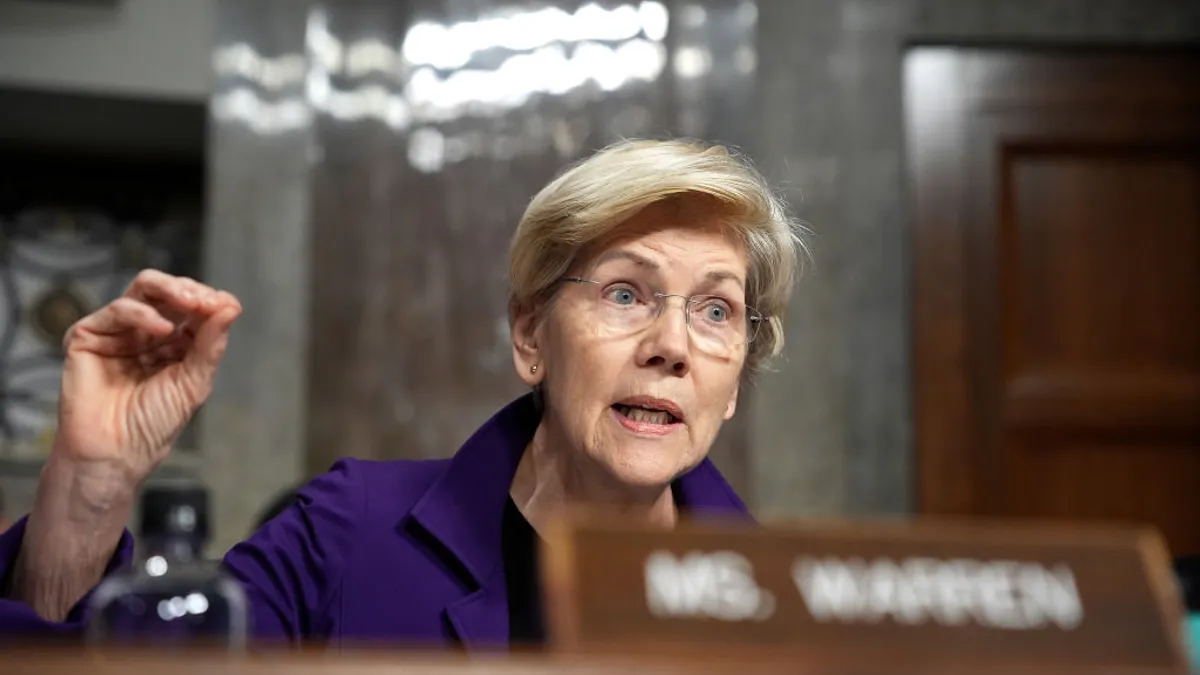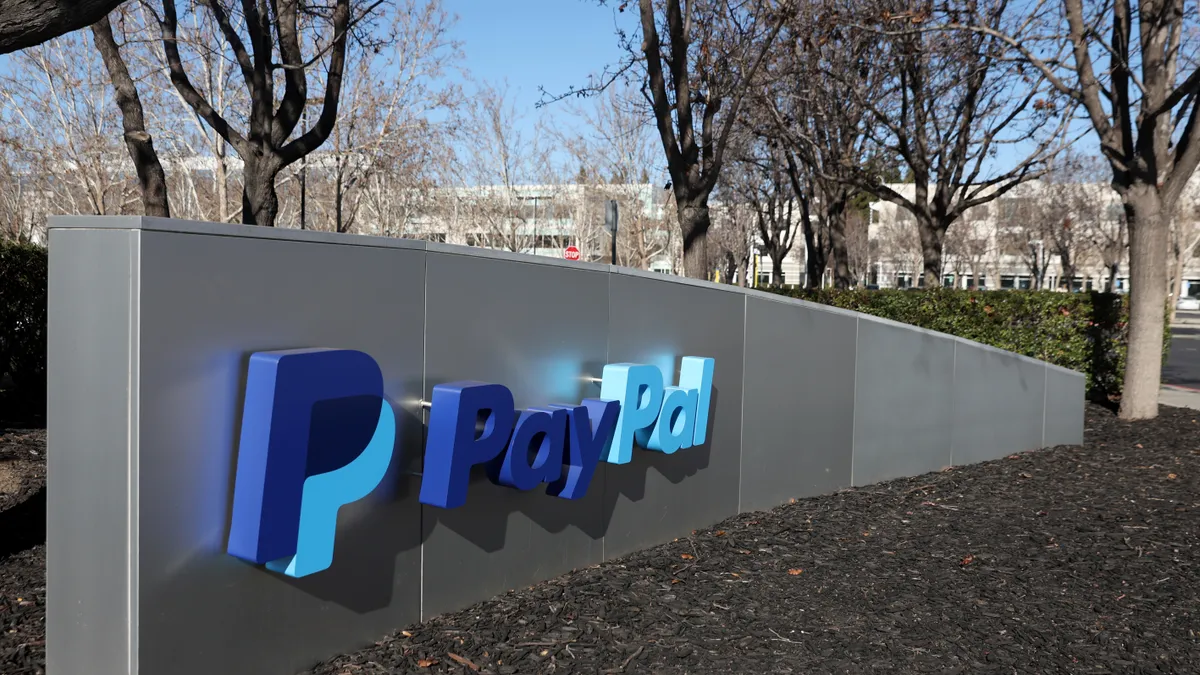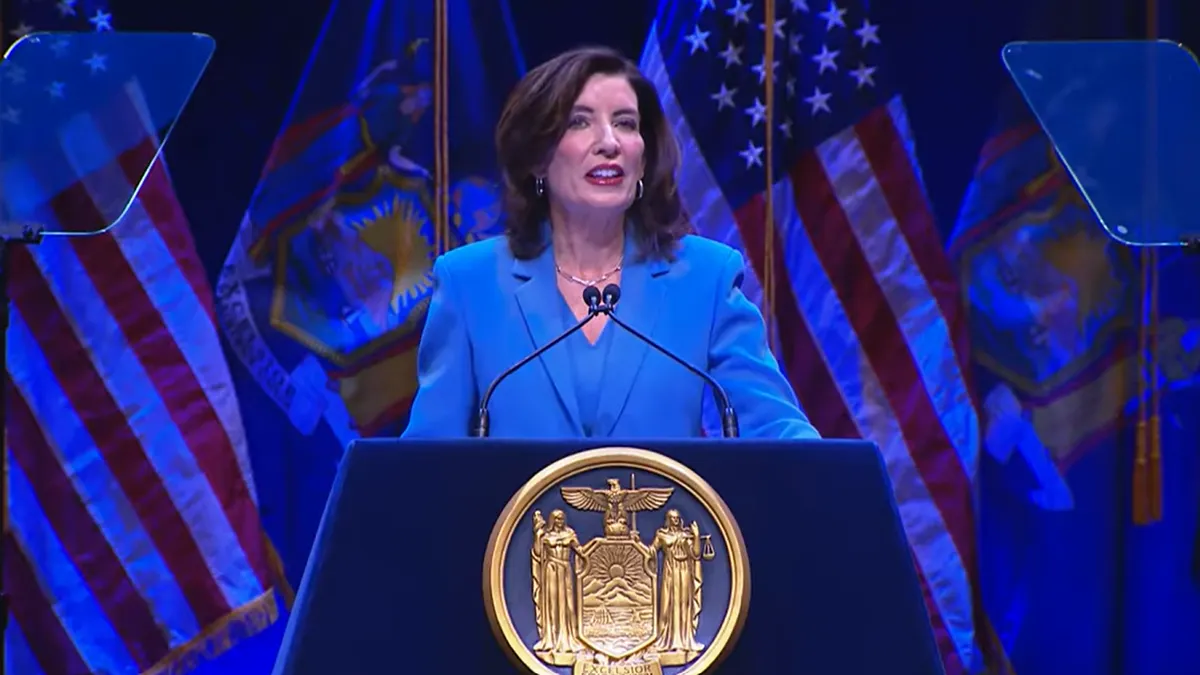Sen. Elizabeth Warren, D-MA, urged the Justice Department to sue to block Capital One’s pending acquisition of Discover, according to a letter she wrote Tuesday to the agency’s antitrust leader, Gail Slater.
Warren cited an address Slater gave in late April warning of the risks that consolidation could again – after the 2007-08 financial crisis – create institutions that are “too big to fail.”
“This transaction will reveal whether you back your words with action,” Warren wrote Tuesday.
The DOJ has 30 days to sue after banking regulators approve a merger application, Warren noted. The Federal Reserve and Office of the Comptroller of the Currency gave a green light April 18 to Capital One’s $35.3 billion proposed transaction. Warren wrote the Fed on May 1, urging the central bank to reconsider.
“Absent a rescission of the Fed’s approval order, the responsibility to prevent this dangerous transaction now falls to the DOJ,” Warren wrote Tuesday.
Slater, however, determined there wasn’t sufficient evidence to challenge the Capital One deal in court, publications reported last month, citing people familiar with the decision.
Nonetheless, Warren pressed that the DOJ “does not need to have previously filed an adverse comment with regulators” about a deal to attempt to block it. The senator Tuesday expressed disappointment that the DOJ had not filed such a comment – “despite reportedly finding competitive concerns with the deal.”
Warren urged Slater to lean on the Clayton Act – and the DOJ’s own updated merger guidelines – to block the Capital One deal, citing that a merger may violate antitrust law if it “significantly increases consolidation in a highly concentrated market” or “eliminates substantial competition between firms.”
Warren noted that during its initial evaluation of the Capital One-Discover merger last year, DOJ reportedly “told regulators that it was concerned, in part, about the deal’s impact on potential credit card users who had no credit” and that agency representatives showed concern that the transaction “would harm competition in the subprime sector.”
Warren asserted, in particular, that Discover “offers interest rates two percentage points lower than Capital One” to borrowers with nonprime credit scores – but that that offer would likely go away once the firms combine.
“Less competition among those with lower credit scores could mean Capital One can raise credit card rates for vulnerable families with limited alternative options, which could be the difference between getting by month-to-month and entering a financial downward spiral,” Warren wrote Tuesday.
Warren repeated concerns that, by acquiring Discover, Capital One would carry more than 30% of the nonprime credit score market, driving the Herfindahl-Hirschman Index – a legacy measure of market consolidation – up by roughly 400 points. For new-to-credit customers, she added, the Fed’s analysis found “the post-merger HHI would increase by 766 points to 1971.”
The DOJ last year withdrew guidelines that leaned heavily on HHI on the idea that the gauge is outdated. But even using it, a transaction that boosts HHI by 200 points or scores above 1,800 generally has been flagged as anticompetitive.
“A merger that creates a firm with a market share over 30 percent and increases HHI by more than 100 points is presumptively illegal under antitrust law,” Warren reiterated Tuesday.
Warren added that DOJ “has previously been skeptical of deals ‘that would enable firms to avoid a regulatory constraint because that constraint was applicable to only one of the merging firms.’”
Capital One has said it aims to convert its debit portfolio to Discover networks, Warren asserted.
“The reason is clear: Discover is not only a card issuer but also a card network, which means it is not subject to the limit on debit card interchange fees imposed by the Durbin Amendment to the Dodd-Frank Act,” Warren said.
While Capital One, before the merger, wouldn’t be able to charge merchants more, Discover can, she said.
“And in case there was any doubt about whether Capital One plans to raise swipe fees, the company told its investors that converting its debit and some credit products to Discover networks would be worth an estimated $1.2 billion,” Warren wrote Tuesday.
By moving some of its credit card volume to Discover’s network – but not all of it – Capital One would retain the leverage to negotiate interchange fees as a credit card issuer with Discover’s largest competitors.
Warren labeled that “a recipe for coordination” among Discover, Visa and Mastercard.
“The solution to an anticompetitive market is not to anoint a new giant, but to fight to level the entire playing field, like the DOJ is doing with its lawsuit against Visa for monopolization,” Warren wrote Tuesday.
Warren argued, too, that a Capital One-Discover combination would put a damper on existing innovation.
She noted that in the February 2024 call announcing the deal, Capital One CEO Richard Fairbank admitted that his bank’s Quicksilver card was a direct response to Discover’s cashbank It card.
“As Capital One absorbs a major competitor, fewer players in this market could … diminish incentives for remaining firms to offer more generous rewards,” Warren warned.























